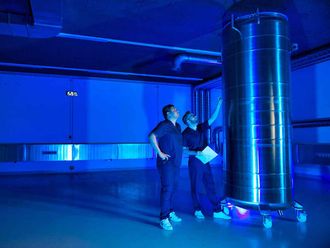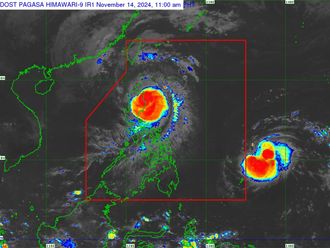Vatican City: Pope Benedict XVI hailed the legacy of John Paul II five years after his death, while questions swirl over the late pontiff's record in combating paedophile priests and whether a miracle needed for his sainthood really happened.
During an evening mass on Monday in St Peter's Basilica to pay tribute to the late pope, Benedict told pilgrims from John Paul's Polish homeland that his predecessor had "without interruption taught us to be faithful witnesses to faith, hope and love".
Krakow cardinal Stanislaw Dziwisz, who for decades was John Paul's personal secretary, was among the prelates at the commemoration.
Also attending was cardinal Bernard Law, who after resigning as Boston archbishop in the sex abuse scandal which rocked his diocese, was put in charge of a prestigious Rome basilica by the late pope.
The 84-year-old John Paul died April 2, 2005, after battling Parkinson's disease. The commemoration was early because April 2 this year falls on Good Friday, when Benedict will preside over Lenten services at the Vatican and at the Colosseum in Rome.
Immediately after John Paul's death, faithful began clamouring for his sainthood, and Benedict in December signed a decree proclaiming his predecessor "venerable" for his holy virtues.
At first, the inexplicable healing of a young French nun from Parkinson's disease had initially seemed like the miracle required for remarkably swift approval for beatification, the last formal step before canonisation.
The nun, who had prayed to John Paul for years, woke up one morning two months after his death, seemingly inexplicably cured of the progressively degenerative neurological disorder.
But a Polish newspaper recently reported that doubts had been cast about whether the nun might not have had Parkinson's at all. Without citing sources, Rzeczpospolita, one of Poland's most respected dailies, said the Vatican had summoned new experts to scrutinise the case.
The Vatican's former head of its saint-making office, cardinal Jose Saraiva Martins, indicated two medical consultants might have had doubts.












